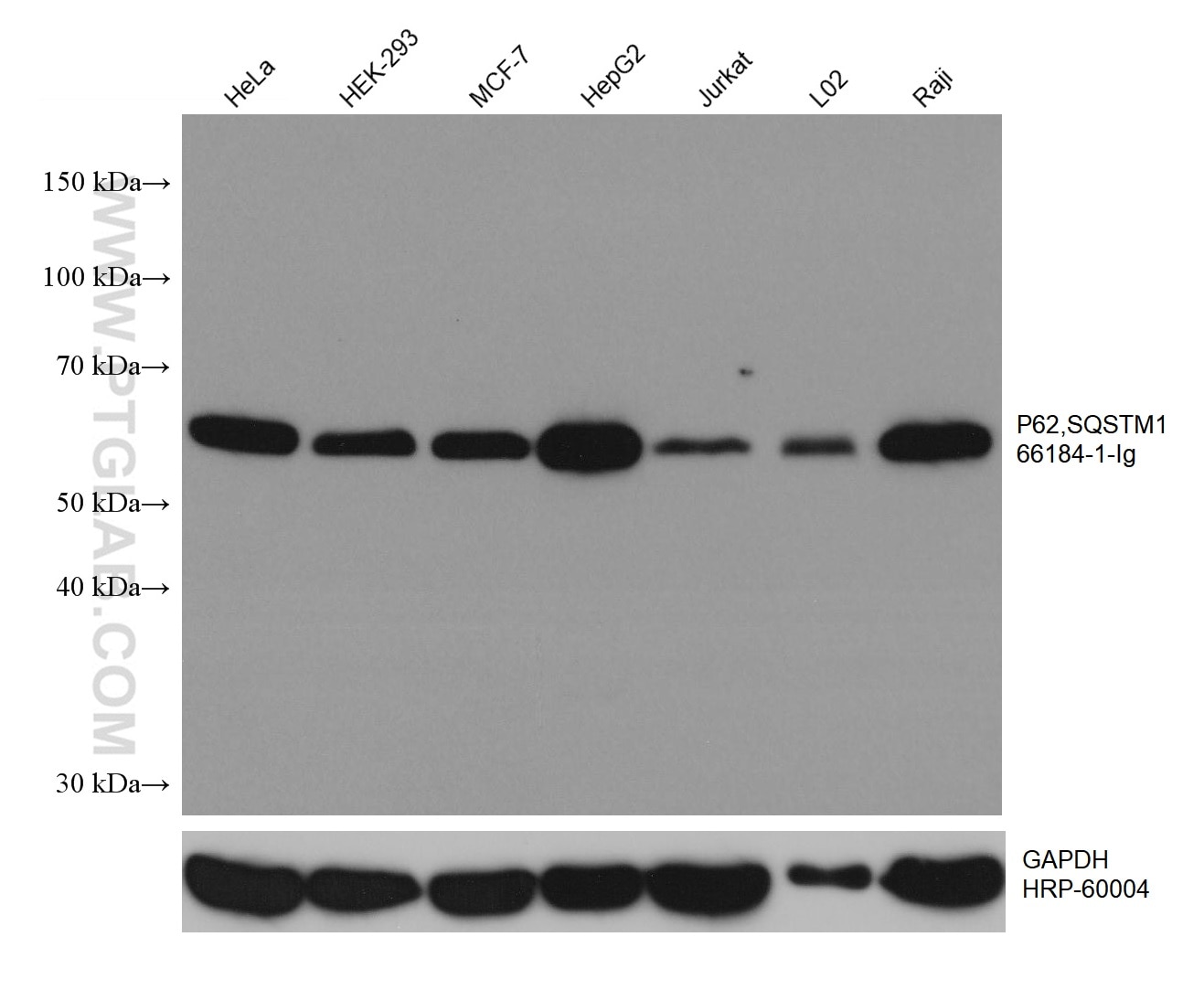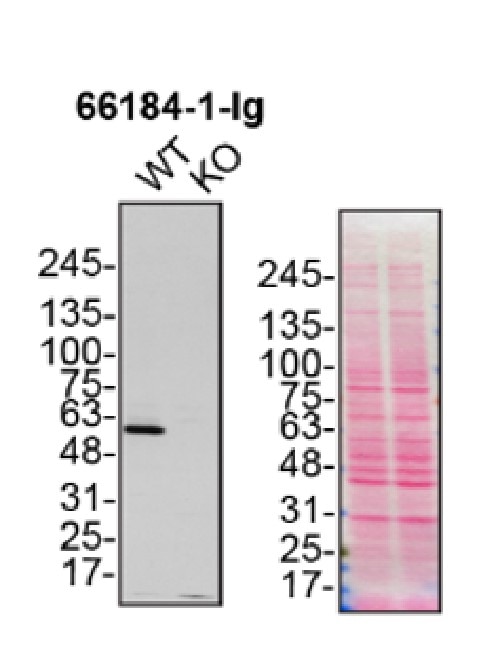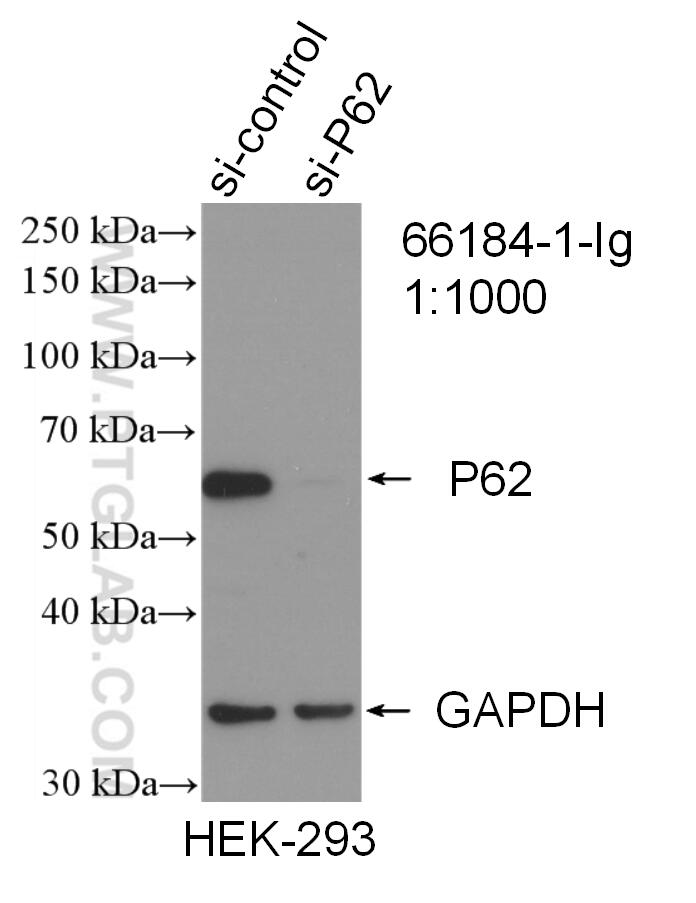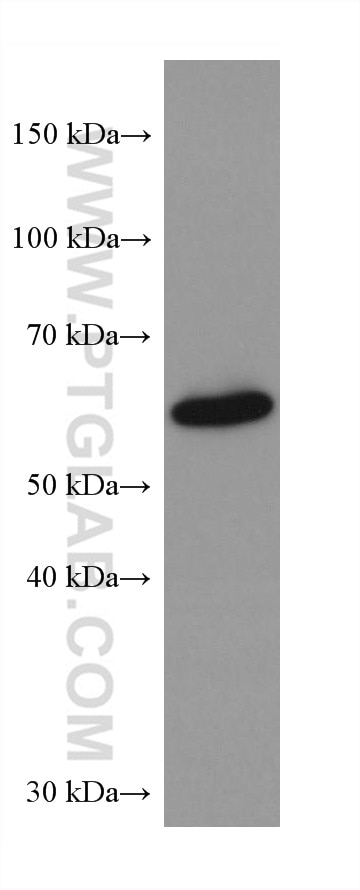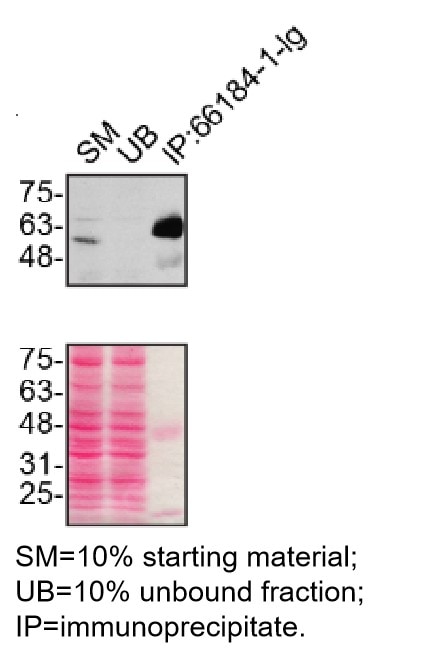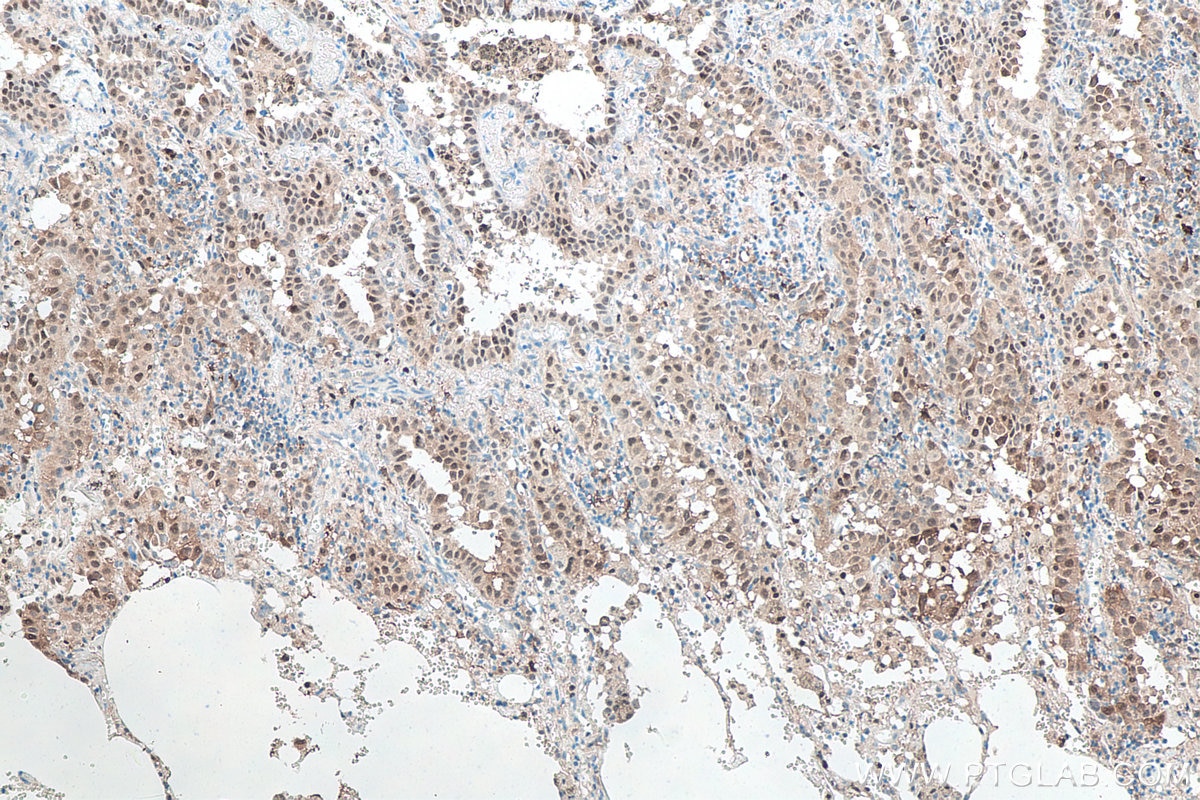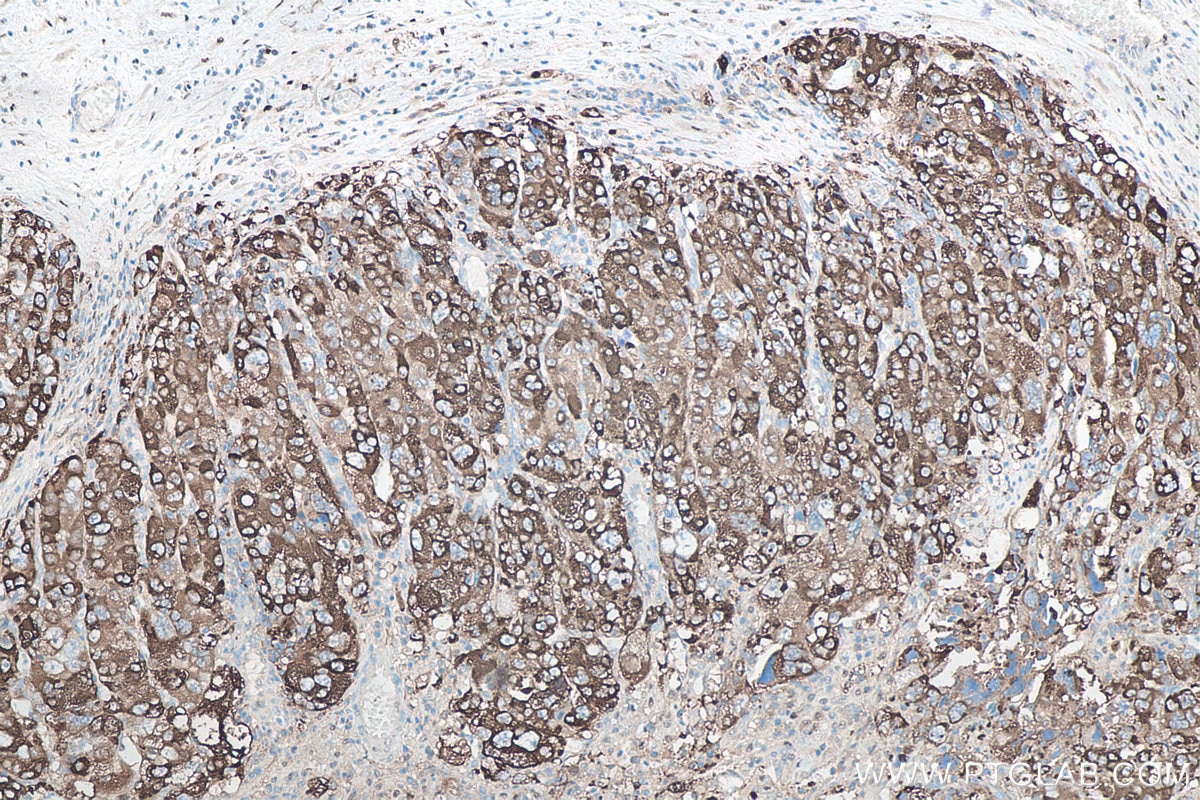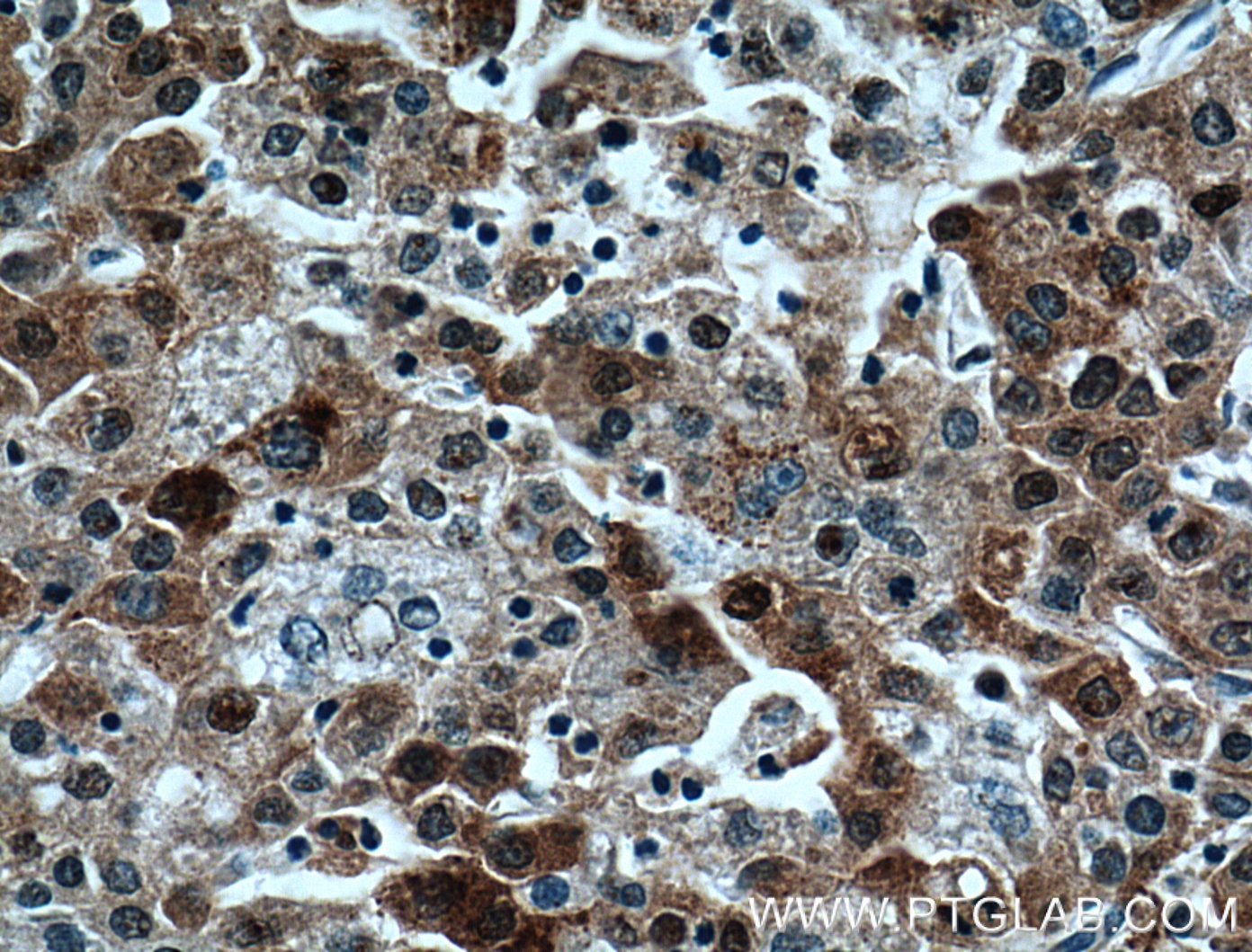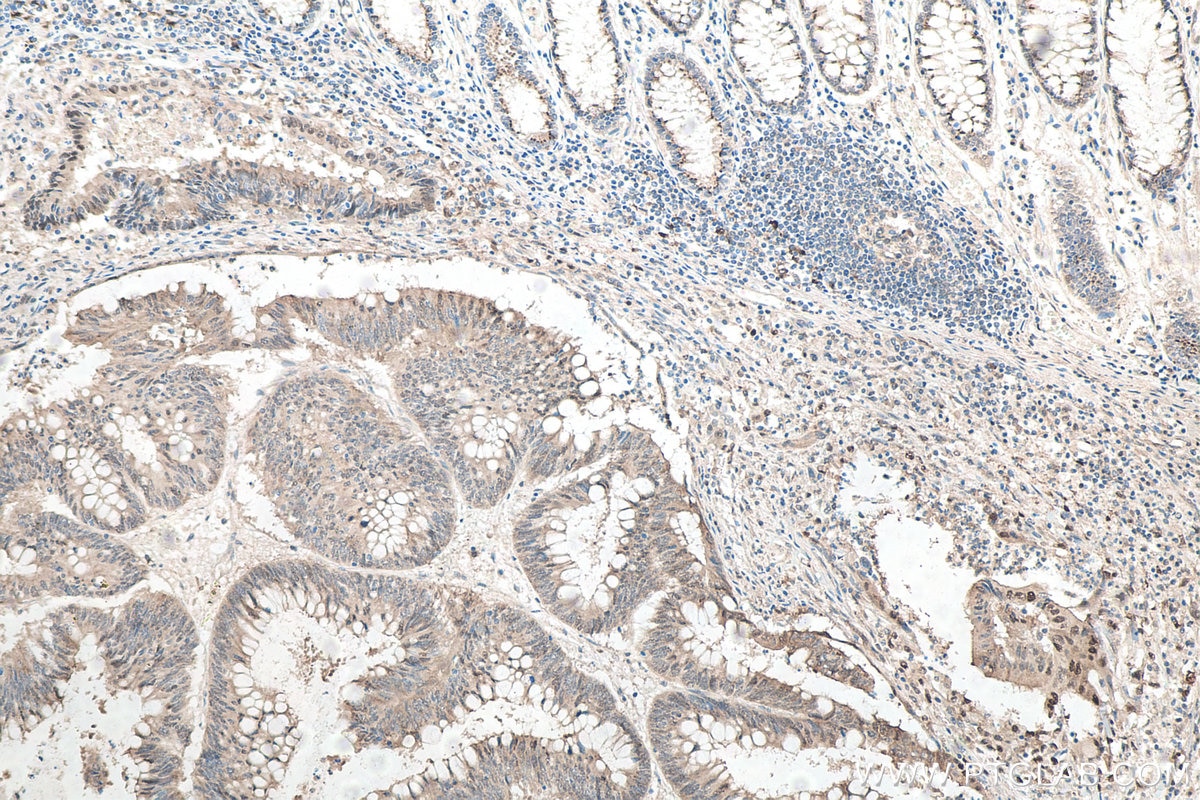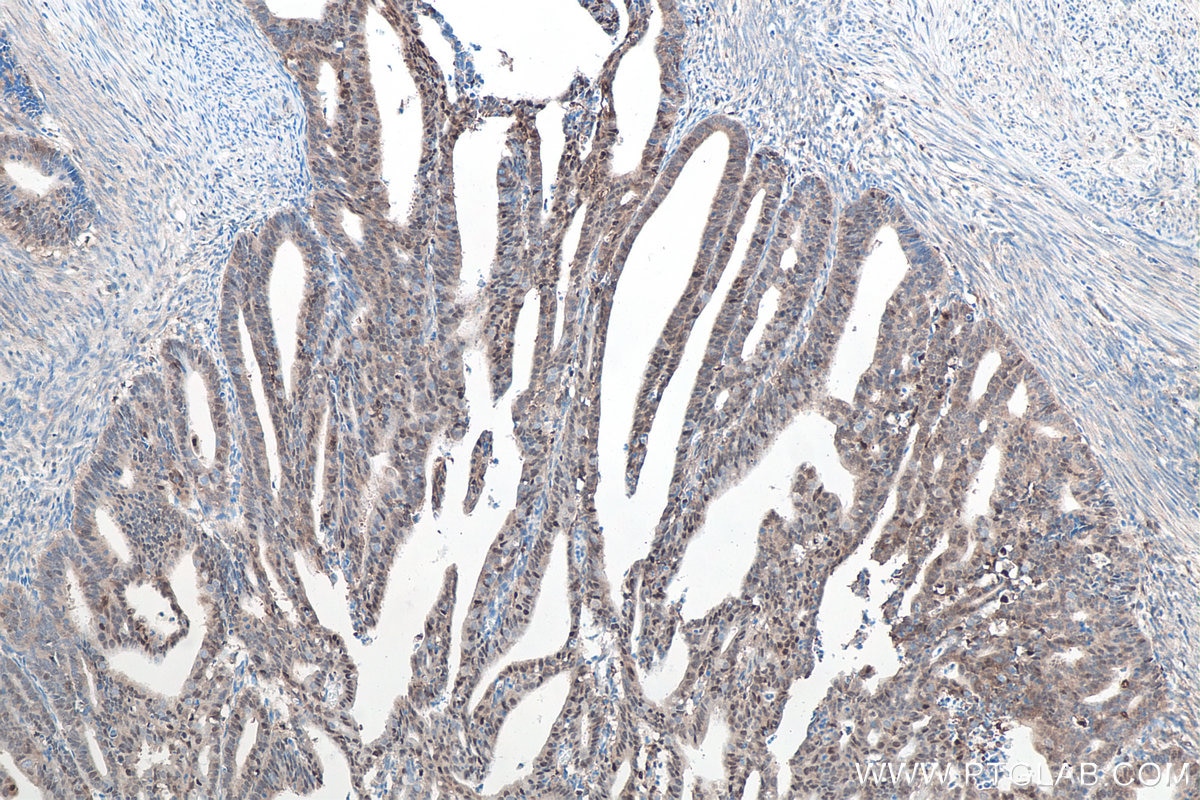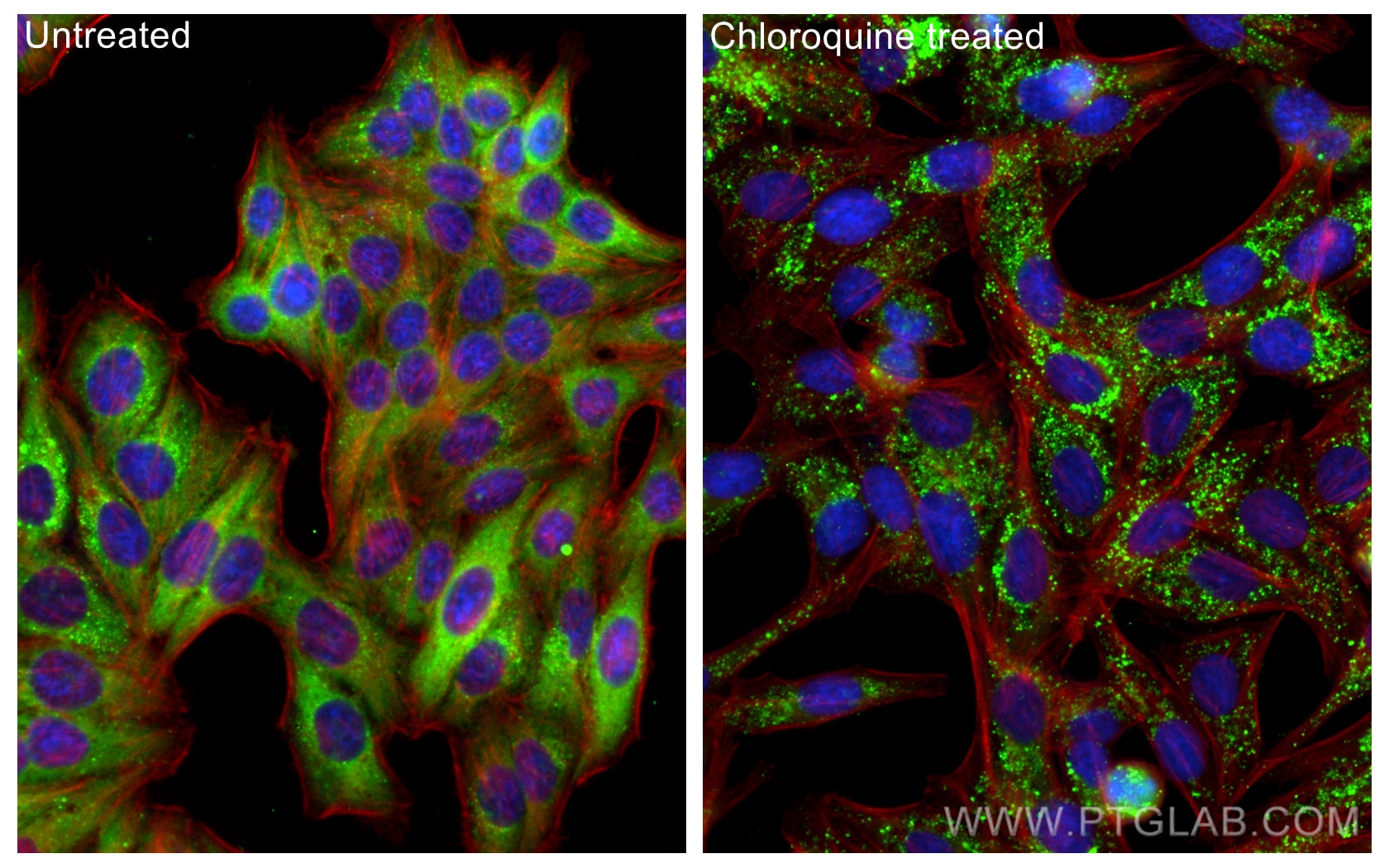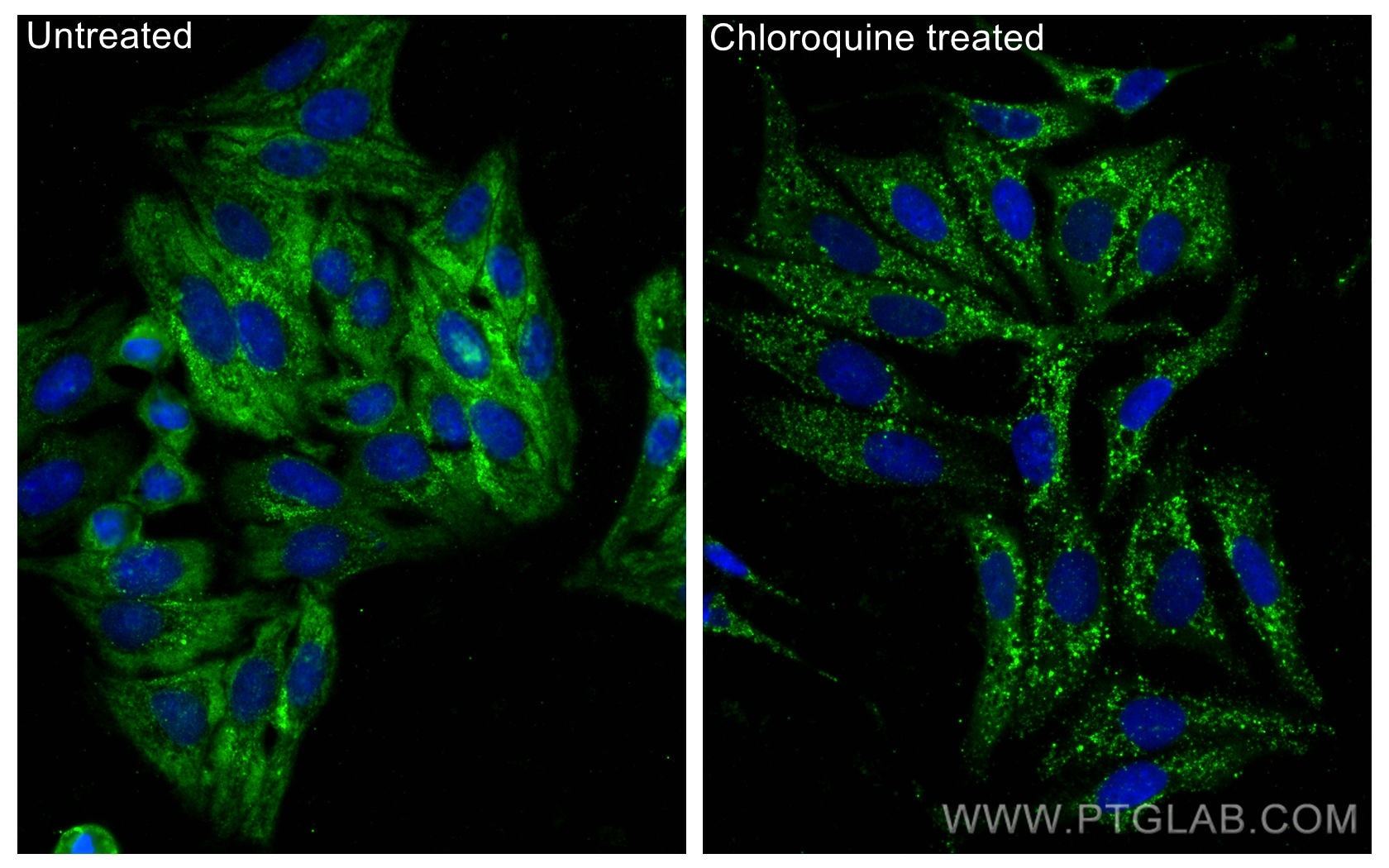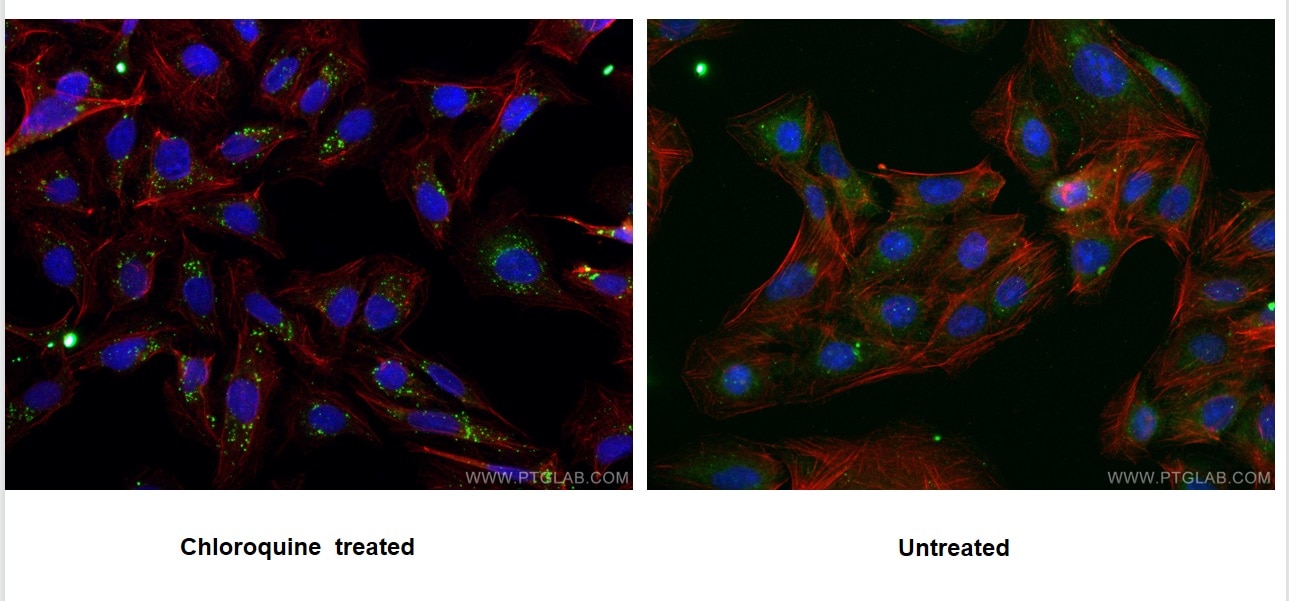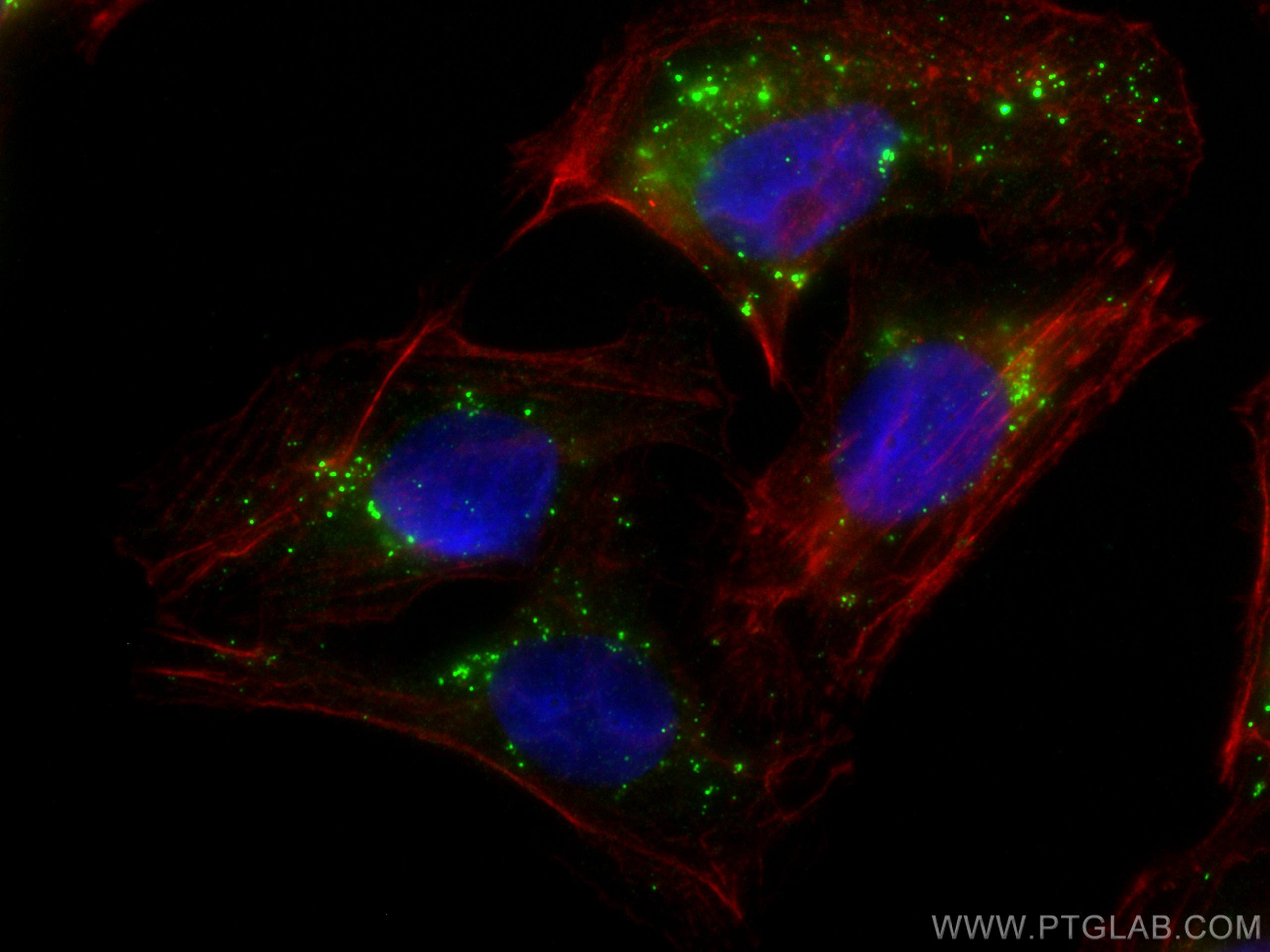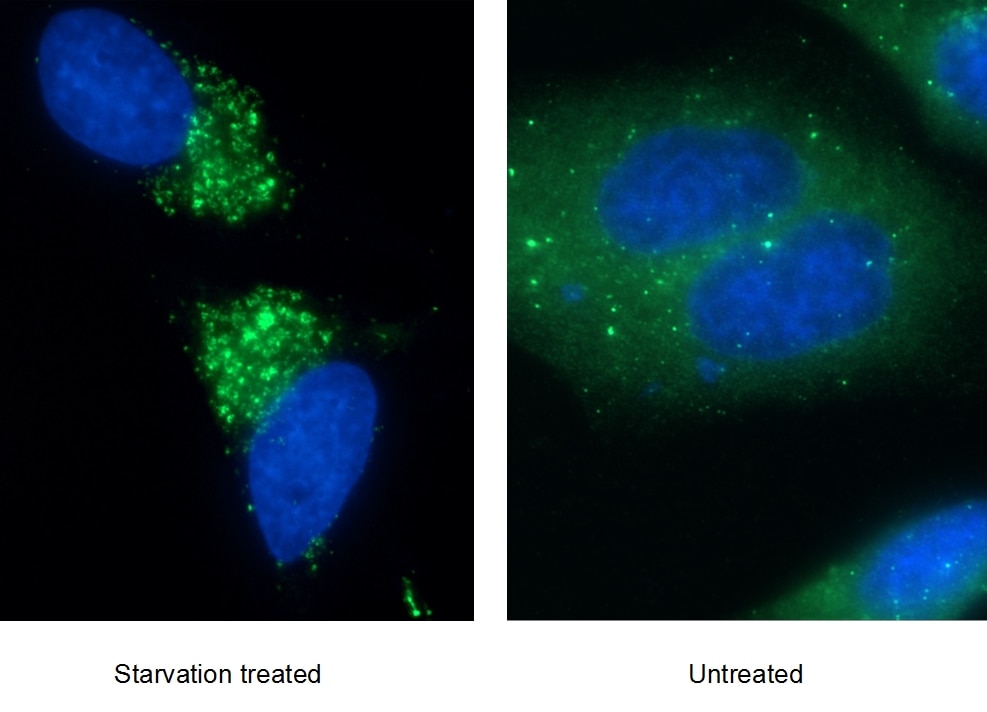- Phare
- Validé par KD/KO
Anticorps Monoclonal anti-P62/SQSTM1
P62/SQSTM1 Monoclonal Antibody for WB, IHC, IF/ICC, IP, ELISA
Hôte / Isotype
Mouse / IgG2b
Réactivité testée
Humain et plus (5)
Applications
WB, IHC, IF/ICC, IP, CoIP, ELISA
Conjugaison
Non conjugué
CloneNo.
1H5C1
N° de cat : 66184-1-Ig
Synonymes
Galerie de données de validation
Applications testées
| Résultats positifs en WB | cellules HeLa, cellules HEK-293, cellules HepG2, cellules Jurkat, cellules K-562, cellules L02, cellules MCF-7, cellules Raji, cellules U2OS |
| Résultats positifs en IP | cellules U2OS, |
| Résultats positifs en IHC | tissu de cancer du poumon humain, tissu de cancer de l'endomètre humain, tissu de cancer du côlon humain, tissu de cancer du foie humain il est suggéré de démasquer l'antigène avec un tampon de TE buffer pH 9.0; (*) À défaut, 'le démasquage de l'antigène peut être 'effectué avec un tampon citrate pH 6,0. |
| Résultats positifs en IF/ICC | cellules HepG2 traitées à la chloroquine, cellules HepG2 traitées par déprivation, cellules U2OS, cellules U2OS traitées à la chloroquine |
Dilution recommandée
| Application | Dilution |
|---|---|
| Western Blot (WB) | WB : 1:5000-1:50000 |
| Immunoprécipitation (IP) | IP : 0.5-4.0 ug for 1.0-3.0 mg of total protein lysate |
| Immunohistochimie (IHC) | IHC : 1:2000-1:8000 |
| Immunofluorescence (IF)/ICC | IF/ICC : 1:400-1:1600 |
| It is recommended that this reagent should be titrated in each testing system to obtain optimal results. | |
| Sample-dependent, check data in validation data gallery | |
Applications publiées
| WB | See 167 publications below |
| IHC | See 11 publications below |
| IF | See 31 publications below |
| IP | See 3 publications below |
| CoIP | See 4 publications below |
Informations sur le produit
66184-1-Ig cible P62/SQSTM1 dans les applications de WB, IHC, IF/ICC, IP, CoIP, ELISA et montre une réactivité avec des échantillons Humain
| Réactivité | Humain |
| Réactivité citée | bovin, Humain, porc, poulet, singe, Hamster |
| Hôte / Isotype | Mouse / IgG2b |
| Clonalité | Monoclonal |
| Type | Anticorps |
| Immunogène | P62/SQSTM1 Protéine recombinante Ag13131 |
| Nom complet | sequestosome 1 |
| Masse moléculaire calculée | 48 kDa |
| Poids moléculaire observé | 62 kDa |
| Numéro d’acquisition GenBank | BC017222 |
| Symbole du gène | P62/SQSTM1 |
| Identification du gène (NCBI) | 8878 |
| Conjugaison | Non conjugué |
| Forme | Liquide |
| Méthode de purification | Purification par protéine A |
| Tampon de stockage | PBS with 0.02% sodium azide and 50% glycerol |
| Conditions de stockage | Stocker à -20°C. Stable pendant un an après l'expédition. L'aliquotage n'est pas nécessaire pour le stockage à -20oC Les 20ul contiennent 0,1% de BSA. |
Informations générales
Sequestosome 1 (SQSTM1/p62) is a multifunctional adaptor protein implicated in selective autophagy, cell signaling pathways, and tumorigenesis. p62 has been implicated in shuttling ubiquitinated and sometimes aggregated proteins for autophagic degradation. As a autophagy-specific substrate, p62 is degraded during the autophagic process, which makes intracellular level of p62 as a marker for autophagy flux. p62 is at the cross-roads of several signaling pathways including Ras/ Raf/ MAPK and NFκB and plays important role in cancer. p62 is a component of inclusion bodies/ protein aggregates found in human diseases, including Huntington's disease, Alzheimer's disease, Parkinson's disease in the brain, and nephropathic cystinosis in kidney (PMID: 22074114, 22860231, 22714671). The molecular weight of p62 is predicted as 48/ 38 kDa, while western blot analyses using this antibody demonstrate the major band around 60-62 kDa in various tissues.
Protocole
| Product Specific Protocols | |
|---|---|
| WB protocol for P62/SQSTM1 antibody 66184-1-Ig | Download protocol |
| IHC protocol for P62/SQSTM1 antibody 66184-1-Ig | Download protocol |
| IF protocol for P62/SQSTM1 antibody 66184-1-Ig | Download protocol |
| Standard Protocols | |
|---|---|
| Click here to view our Standard Protocols |
Publications
| Species | Application | Title |
|---|---|---|
Gastroenterology Proteomic characterization identifies clinically relevant subgroups of gastrointestinal stromal tumors | ||
Acta Neuropathol Upstream open reading frame with NOTCH2NLC GGC expansion generates polyglycine aggregates and disrupts nucleocytoplasmic transport: implications for polyglycine diseases. | ||
Nat Commun IL-6 regulates autophagy and chemotherapy resistance by promoting BECN1 phosphorylation. | ||
Mol Neurodegener Collusion of α-Synuclein and Aβ aggravating co-morbidities in a novel prion-type mouse model | ||
J Cell Biol CHMP2B regulates TDP-43 phosphorylation and cytotoxicity independent of autophagy via CK1. | ||
Theranostics The c-Myc/miR-27b-3p/ATG10 regulatory axis regulates chemoresistance in colorectal cancer. |
Avis
The reviews below have been submitted by verified Proteintech customers who received an incentive for providing their feedback.
FH Eleonora (Verified Customer) (04-12-2024) | The antibody unfortunately did not work in IF, no signal. In western blot the band is present but very faint.
|
FH David (Verified Customer) (01-13-2020) | Used for immunocytochemistry. Low signal in control cells, but very strong response when treated with bafilomycin A. Very obvious p62 puncta in cells.
|
